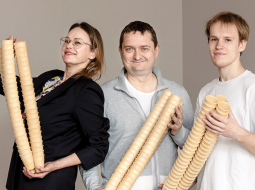
Ilustratīvs foto: Evija Trifanova, LETA
Inflation reached 21.5% in August 2022 and increased to 22.4% according to Eurostat in September, its highest level since 1996. We typically think of this as the effect of soaring energy prices and the way they have filtered into transportation costs and from there to food prices etc.
I will argue that there is somewhat more to the picture. Below I have six possible reasons for inflation and I will argue that the first five are/have been present in Latvia and that we have to hope that the sixth will not materialize to cause even higher inflation. Let me deal with them one at a time, mostly with graphs and with just a little bit of text.
Reason #1: Demand pull factors
Higher inflation did not just materialize after Russia started its war in Ukraine. Looking at Figure 1, I think of August 2021 as the first month where inflation starting taking off. In that month, inflation hit 3.0% in the Euro Area, well above the ECB monetary policy target of 2%, and 3.6% in Latvia. Our economies had finally come out of corona with rising demand being the result – for travel, for restaurant visits, for hotel accommodation and more. Result: Rising prices, rising inflation.













